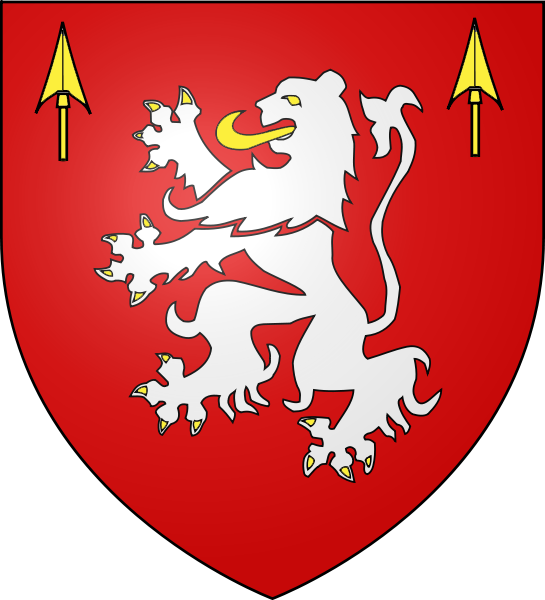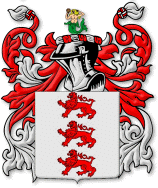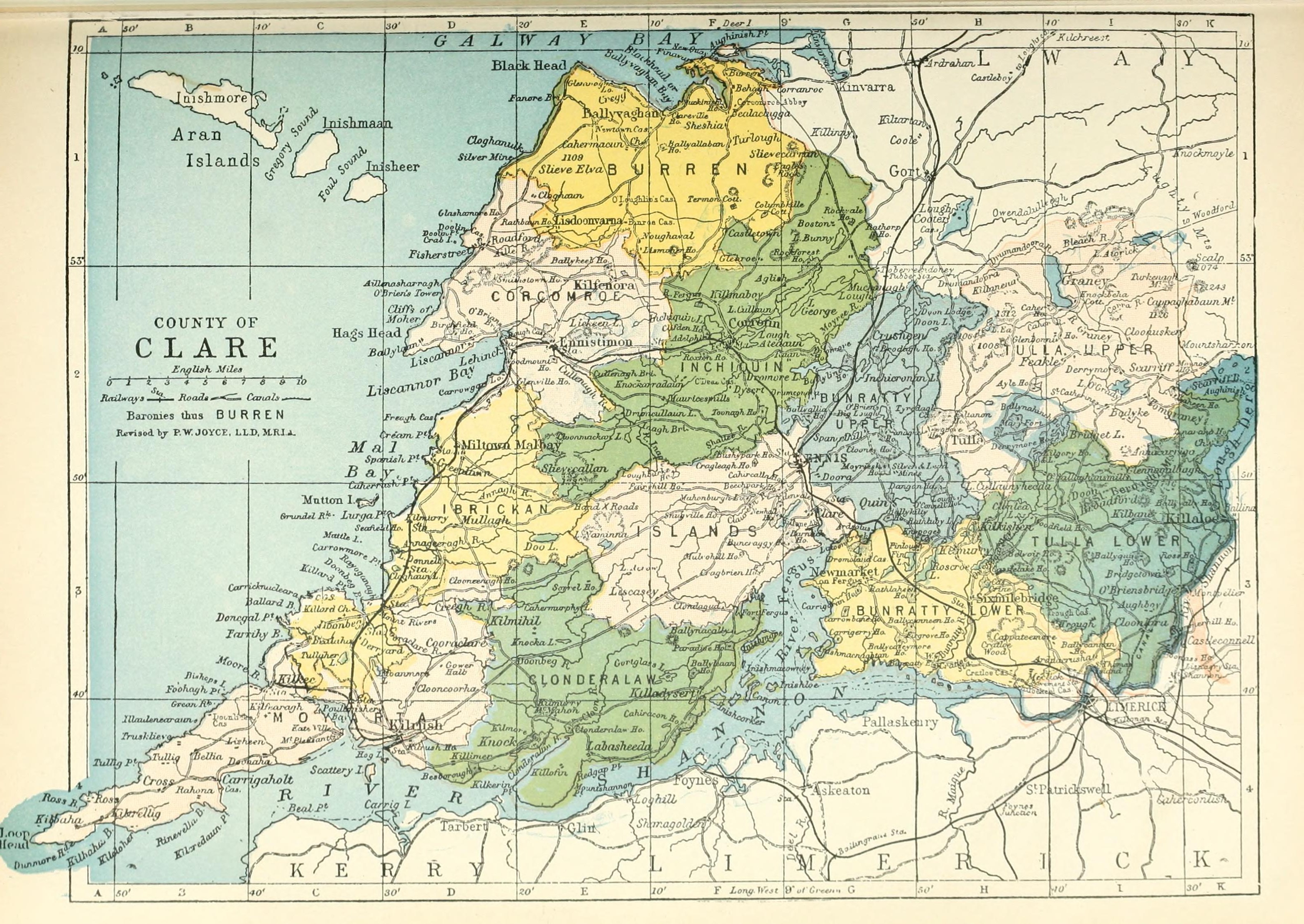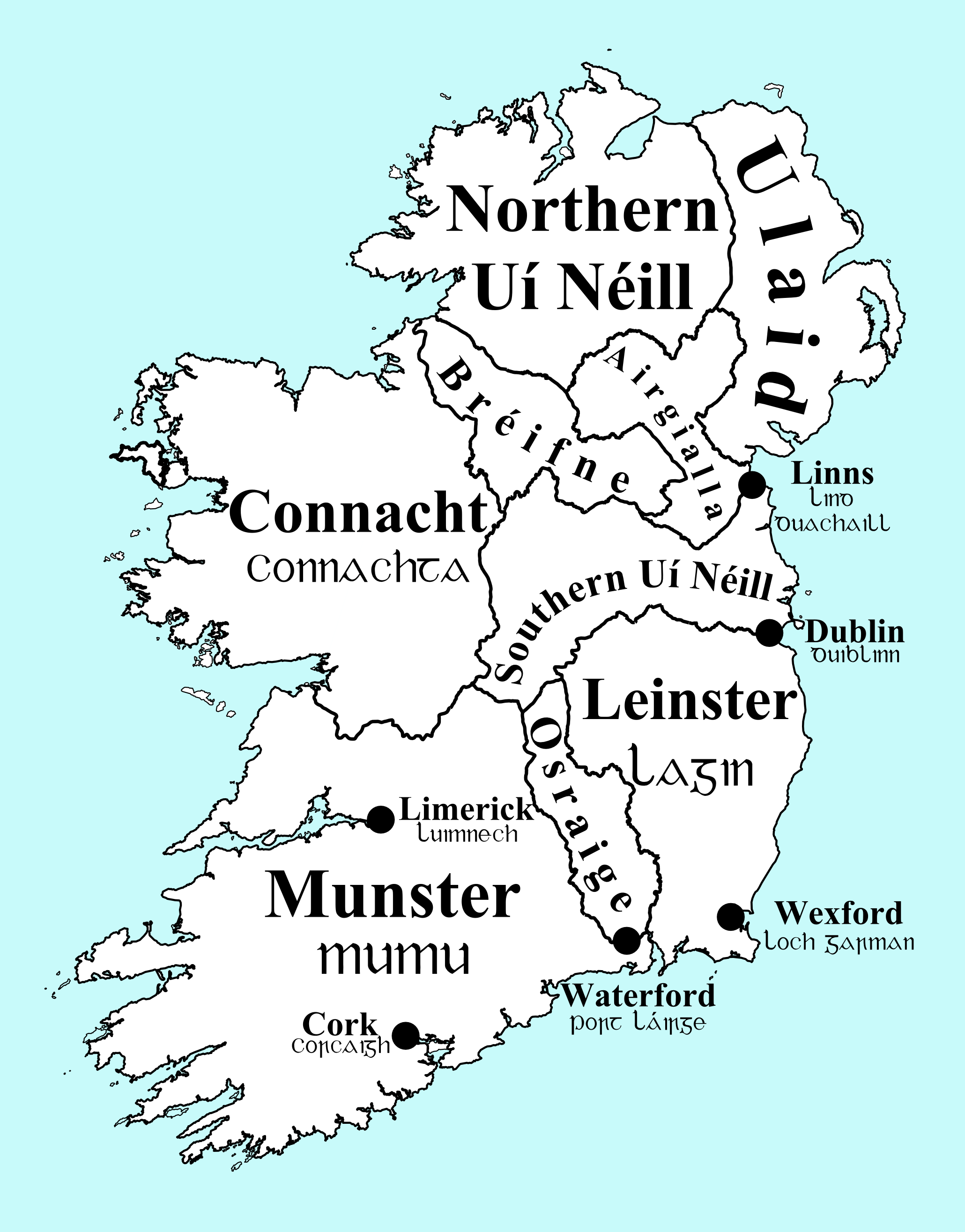|
McNamara
MacNamara or McNamara ( Irish: ''Mac Con Mara'') is an Irish surname of a family of County Clare in Ireland. According to historian C. Thomas Cairney, the MacNamaras were one of the chiefly families of the Dal gCais or Dalcassians who were a tribe of the Erainn who were the second wave of Celts to settle in Ireland between about 500 and 100 BC. McNamara family The McNamara family were an Irish clan claiming descent from the Dál gCais and, after the O'Briens, one of the most powerful families in the Kingdom of Thomond as Lords of Clancullen (a title later divided into East and West families). They are related to the O'Gradys, also descended from the Uí Caisin line of the Dál gCais. The name began with the chieftain Cumara, of Maghadhair in county Clare. Cumara is a contracted form of Conmara – hound of the sea. His son, Domhnall, who died in 1099, adopted the surname Mac Conmara, or son of Cumara, thus becoming the first of his name. The name has survived relatively u ... [...More Info...] [...Related Items...] OR: [Wikipedia] [Google] [Baidu] |
McInerney
The name McInerney is of noble Irish origin where it is found in the modern Irish form of ''Mac an Airchinnigh'' () and in the old and literary forms of ''Mac an Oirchinnigh'' and ''Mac an Oirchindig''. The pronunciation of ''Mac an Oirchinnigh'' led the name to be sometimes anglicised as McEnherheny in Irish documents from the 16th–19th centuries. The name translates to "son of the erenagh" in Irish ("erenagh" being ''airchinneach''), literally meaning "son of the Lord of church lands". ''Airchinneach'' may in turn derive from the twin components of ''air'' ("noble") and ''ceann'' ("head"), therefore meaning a 'noble-head' or 'Lord', denoting its aristocratic status in medieval Ireland. The coat of arms is three red lions passant, and the motto is ''Veritas'', meaning "Truth". In some places, the motto can be found as ''Vincit Veritas'', meaning "Truth Conquers", or "Truth Prevails". According to historian C. Thomas Cairney, the MacInerneys were one of the chiefly families of ... [...More Info...] [...Related Items...] OR: [Wikipedia] [Google] [Baidu] |
County Clare
County Clare () is a Counties of Ireland, county in the Provinces of Ireland, province of Munster in the Southern Region, Ireland, Southern part of Republic of Ireland, Ireland, bordered on the west by the Atlantic Ocean. Clare County Council is the Local government in the Republic of Ireland, local authority. The county had a population of 127,938 at the 2022 census of Ireland, 2022 census. The county seat and largest settlement is Ennis. Etymology There are two main hypotheses for the origins of the county name "Clare". One is that the name is derived from Thomas de Clare, Lord of Thomond, Thomas de Clare an Anglo-Norman peer and soldier from the de Clare family, who was deeply embroiled in local politics and fighting in the 1270s and 1280 and had had acquired land in Kilkenny and Thomond that included the Castle of Clare. In 1590 County Clare was named after the castle, which is in a strategic location. An alternative hypothesis is that the county name ''Clare'' comes from ... [...More Info...] [...Related Items...] OR: [Wikipedia] [Google] [Baidu] |
Donnchadh Ruadh Mac Conmara
Donnchadh Ruadh Mac Conmara (1715–1810) was an Irish schoolmaster of a hedge school, Jacobite propagandist, antihero in Irish folklore, and composer of poetry in both Munster Irish and in the Irish language outside Ireland. Life He was born into the Irish clan Mac Conmara at Cratloe (), County Clare (). According to the oral tradition, Donnchadh Ruadh left Ireland and studied abroad to enter the priesthood of the still illegal and underground Catholic Church in Ireland, but was expelled from the Irish College in Rome and then spent several years wandering in Catholic Europe. Following his return to Ireland through the port of Waterford (), the poet settled in the Sliabh gCua district between the Comeraghs () and Knockmealdown Mountains () of County Waterford, where he remains a well-known antihero in local Irish folklore. Around 1741, he was appointed assistant master of the illegal Catholic hedge school at Seskinane, near Touraneena (), County Waterford. He is said l ... [...More Info...] [...Related Items...] OR: [Wikipedia] [Google] [Baidu] |
Irish Clan
Irish clans are traditional kinship groups sharing a common surname and heritage and existing in a lineage-based society, originating prior to the 17th century. A clan (or in Irish, plural ) included the chief and his patrilineal relatives; however, Irish clans also included unrelated clients of the chief. These unrelated clients and their agnatic descendants were ineligible to be elected chief, but nonetheless assumed the name of the leading lineage as a show of allegiance. Beginning in the 8th century, various genealogical collections were compiled purporting to trace the ancestry of these clans. Among them are genealogies in Rawlinson B 502, the Book of Ballymote, the Book of Lecan, the ''Leabhar Mór na nGenealach'' compiled by Dubhaltach MacFhirbisigh, and the Ó Cléirigh Book of Genealogies. In all of these cases, the genealogies listed state the agnatic descent of the chiefs and chieftains, and not necessarily every member of the clan. At least one genetic study has c ... [...More Info...] [...Related Items...] OR: [Wikipedia] [Google] [Baidu] |
Irish Families
Irish commonly refers to: * Someone or something of, from, or related to: ** Ireland, an island situated off the north-western coast of continental Europe ***Éire, Irish language name for the island and the sovereign state *** Erse (other), Scots language name for the Irish language or Irish people ** Republic of Ireland, a sovereign state ** Northern Ireland, a constituent unit of the United Kingdom of Great Britain and Northern Ireland * Irish language, a Celtic Goidelic language of the Indo-European language family spoken in Ireland * Irish English, set of dialects of the English language native to Ireland * Irish people, people of Irish ethnicity Irish may also refer to: Places * Irish Creek (Kansas), a stream in Kansas * Irish Creek (South Dakota), a stream in South Dakota * Irish Lake, Watonwan County, Minnesota * Irish Sea, the body of water which separates the islands of Ireland and Great Britain People * Irish (surname), a list of people * William Irish, ps ... [...More Info...] [...Related Items...] OR: [Wikipedia] [Google] [Baidu] |
Irish Clans
Irish clans are traditional kinship groups sharing a common surname and heritage and existing in a lineage-based society, originating prior to the 17th century. A clan (or in Irish, plural ) included the chief and his Patrilineality, patrilineal relatives; however, Irish clans also included unrelated clients of the chief. These unrelated clients and their agnatic descendants were ineligible to be elected chief, but nonetheless assumed the name of the leading lineage as a show of allegiance. Beginning in the 8th century, various genealogical collections were compiled purporting to trace the ancestry of these clans. Among them are genealogies in Bodleian_Library,_MS_Rawlinson_B_502, Rawlinson B 502, the Book of Ballymote, the Great_Book_of_Lecan, Book of Lecan, the Leabhar_na_nGenealach, ''Leabhar Mór na nGenealach'' compiled by Dubhaltach MacFhirbisigh, and the Ó Cléirigh Book of Genealogies. In all of these cases, the genealogies listed state the agnatic descent of the chiefs ... [...More Info...] [...Related Items...] OR: [Wikipedia] [Google] [Baidu] |
Namara
{{Surname ...
Namara is a surname. Notable people with the surname include: *Grace Namara (), Ugandan politician *Evelyn Namara (), Ugandan corporate executive *Marguerite Namara (1888–1974), American actress and singer * Stephen Namara (born 1953), American artist See also *Namara inscription *MacNamara MacNamara or McNamara ( Irish: ''Mac Con Mara'') is an Irish surname of a family of County Clare in Ireland. According to historian C. Thomas Cairney, the MacNamaras were one of the chiefly families of the Dal gCais or Dalcassians who were a tri ... [...More Info...] [...Related Items...] OR: [Wikipedia] [Google] [Baidu] |
Poet
A poet is a person who studies and creates poetry. Poets may describe themselves as such or be described as such by others. A poet may simply be the creator (thought, thinker, songwriter, writer, or author) who creates (composes) poems (oral tradition, oral or literature, written), or they may also performance, perform their art to an audience. The work of a poet is essentially one of communication, expressing ideas either in a literal sense (such as communicating about a specific event or place) or metaphorically. Poets have existed since prehistory, in nearly all languages, and have produced works that vary greatly in different cultures and periods. Throughout each civilization and language, poets have used various styles that have changed over time, resulting in countless poets as diverse as the literature that (since the advent of writing systems) they have produced. History Ancient poets The civilization of Sumer figures prominently in the history of early poetry, a ... [...More Info...] [...Related Items...] OR: [Wikipedia] [Google] [Baidu] |
Jacobitism
Jacobitism was a political ideology advocating the restoration of the senior line of the House of Stuart to the Monarchy of the United Kingdom, British throne. When James II of England chose exile after the November 1688 Glorious Revolution, the Parliament of England ruled he had "abandoned" the English throne, which was given to his Protestant daughter Mary II of England, and his nephew, her husband William III of England, William III. On the same basis, in April the Convention of Estates (1689), Scottish Convention awarded Mary and William the throne of Scotland. The Revolution created the principle of a contract between monarch and people, which if violated meant the monarch could be removed. A key tenet of Jacobitism was that kings were appointed by God, making the post-1688 regime illegitimate. However, it also functioned as an outlet for popular discontent, and thus was a complex mix of ideas, many opposed by the Stuarts themselves. Conflict between Charles Edward Stuar ... [...More Info...] [...Related Items...] OR: [Wikipedia] [Google] [Baidu] |
Quin Abbey
Quin Abbey ( Irish: ''Mainistir Chuinche''), is a ruined Franciscan abbey in Quin, County Clare, Ireland. It was built for Fathers Purcell and Mooney, friars of the Franciscan order.75th Annual Report of the Commissioners of Public Works in Ireland; Clonmacnois, King's County. Dublin: A. Thom & Co, 1906 History The placename (Irish ''Cuinche''; 13th-century documents also use the spellings ''Cuinnche, Cuinnchi, Cunnchi, Cuindchi, Coinche, Coynche, Cuínchi, Cuince'') is thought to derive from a tree: either an arbutus (strawberry tree) (Irish ''caithne'') or perhaps a quince (Irish ''cainche''), used at the time for making jam. A far earlier monastery had existed on the site but burned down in 1278. A Norman castle was built soon after by Thomas de Clare, a military commander. The foundations of the castle's enormous corner towers can still be seen. Around 1350 the castle, by then a ruin, was rebuilt as a church by the MacNamara clan. The present abbey was rebuilt eithe ... [...More Info...] [...Related Items...] OR: [Wikipedia] [Google] [Baidu] |
O'Gradys
The O'Grady family, also styled O'Grady of Kilballyowen, is one of Ireland's noble families and surviving Chiefs of the Name. Their title is ''The O'Grady'' in English and ''Ó Gráda'' in Irish. Naming conventions History They belong to the Dál gCais kindred and are distant cousins to the O'Brien dynasty, but have since the Middle Ages been based not in County Clare, from where they originated, but in County Limerick. The seat of the family, Kilballyowen, is near the town of Bruff. According to historian C. Thomas Cairney, the O'Gradys were one of the chiefly families of the Dal gCais or Dalcassians who were a tribe of the Erainn who were the second wave of Celts to settle in Ireland between about 500 and 100 BC. The name Standish was often used by the family; it derives from the marriage in 1633 of Darby O'Grady, The O'Grady, to Faith Standish. Some of the O'Grady family converted to the Church of Ireland (Anglican Communion) and produced a Bishop of Meath, Hugh Brady ... [...More Info...] [...Related Items...] OR: [Wikipedia] [Google] [Baidu] |





